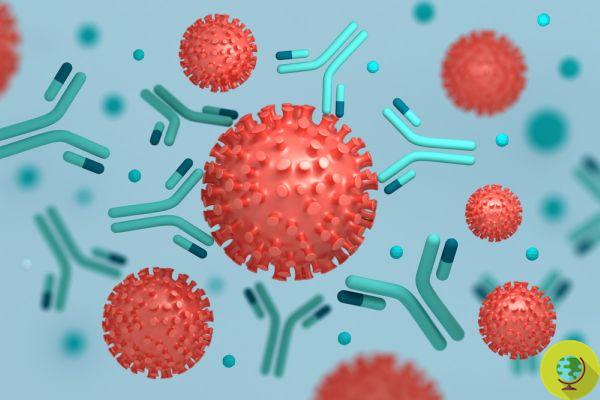
After 2/3 months, the antibodies in patients who have had the coronavirus, both symptomatic and asymptomatic, are drastically reduced
Don't store avocado like this: it's dangerousAfter 2/3 months the antibodies developed by both symptomatic and asymptomatic who have had the coronavirus are drastically reduced. It is therefore difficult to establish the duration of immunity even for those who have contracted the virus and are cured of it.
What do we really know about the asymptomatic and the antibody response to the coronavirus? Still too little, as shown by a new study published in 'Nature Medicine', which would highlight, if confirmed, "all the risks of the use of" immunity passports ", supporting instead the prolonged use of interventions such as social distancing and 'isolation of high-risk groups ”, as the authors explain.
This is because the protective effect ensured by the antibodies could be shorter than previously thought. According to the new research, the level could drop dramatically in 2-3 months after infection, for both symptomatic and asymptomatic patients. If this were confirmed, important questions must immediately be asked about the measures to be taken to avert new infections.
The researchers studied a small group, which, let's face it right away, does not allow to give definitive answers. There are 37 symptomatic patients and 37 asymptomatic patients. They found that among those who tested positive for the presence of the IgG antibody, one of the main types of antibodies induced after infection, over 90% showed a sharp decline in 2-3 months.
The mean percentage reduction was over 70% for both symptomatic and asymptomatic patients.
Of the 37 subjects, identified in a group of 178 people positive for the virus, 22 were female and 15 male, aged between 8 and 75 years (mean age 41 years).
“Eight weeks after hospital discharge, neutralizing antibody levels decreased in 81,1% of asymptomatic patients, compared with 62,2% of symptomatic patients. Furthermore, the former had lower levels for 18 pro-anti-inflammatory cytokines (cell signaling proteins). This indicates that asymptomatic patients may have had a weaker immune response to Sars-CoV-2 infection, ”the authors suggest.
The study was conducted by researchers from Chongqing Medical University.
For Jin Dong-Yan, a professor of virology at the University of Hong Kong (who was not part of the research team), however, the study does not deny the possibility that other parts of the immune system may offer protection. Once the virus is in circulation, some cells in the body could store it and protect it for a second wave. Furthermore, scientists are still studying whether this mechanism works for the new coronavirus.
In short, nothing official and nothing certain. Again, further studies on larger groups will be needed to determine the duration of immunity achieved by antibodies.
The fact remains that the asymptomatic transmission of the coronavirus still remains one of the most mysterious aspects to investigate, scientists must try to understand if and for how long SARS-CoV-2 manages to immunize those who have overcome the disease.
“On the immunity license I always raise doubts and cautions, because we don't know many things yet. First of all, if the antibodies are protective and for how long they last - confirms Crisanti - And on the basis of the studies we have done on the suitability of plasma bags, doubts increase, because most of this plasma is not neutralizing in vitro and asymptomatic people do not produce antibodies. I am beginning to be alarmed. The immunity naturally induced by the virus is so varied that I don't feel like saying that most of the people who become infected are protected, ”Crisanti explained, not surprisingly, in a recent interview.
Fonti: Clinical and immunological assessment of asymptomatic SARS-CoV-2 infections, reuters
Read also:
Chrysants: Plasma? The real breakthrough would be to reproduce antibodies in the laboratory (such as tetanus)


























